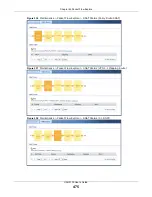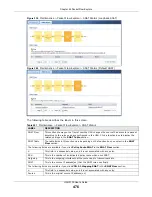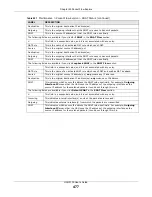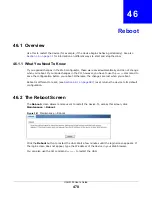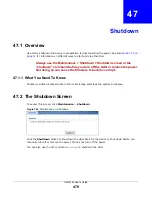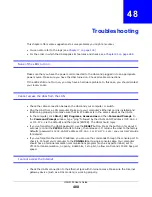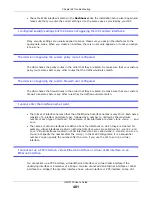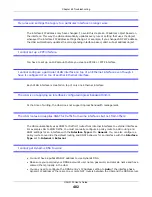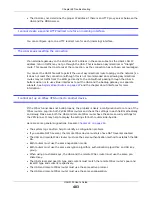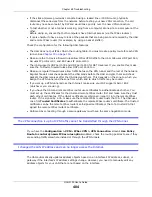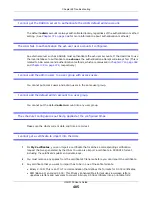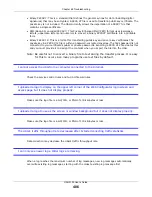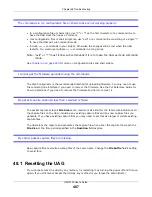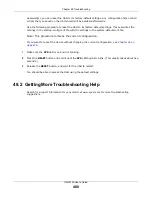
Chapter 45 Packet Flow Explore
UAG5100 User’s Guide
473
The following table describes the labels in this screen.
Table 220
Maintenance > Packet Flow Explore > Routing Status
LABEL
DESCRIPTION
Routing Flow
This section shows you the flow of how the UAG determines where to route a packet. Click a
function box to display the related settings in the Routing Table section.
Routing Table
This section shows the corresponding settings according to the function box you click in the
Routing Flow section.
The following fields are available if you click Direct Route, Static Route, or Main Route in the Routing
Flow section.
#
This field is a sequential value, and it is not associated with any entry.
Destination
This is the destination IP address of a route.
Gateway
This is the IP address of the next-hop gateway or the interface through which the traffic is
routed.
Interface
This is the name of an interface associated with the route.
Metric
This is the route’s priority among the displayed routes.
Flags
This indicates additional information for the route. The possible flags are:
•
A - this route is currently activated.
•
S - this is a static route.
•
C - this is a direct connected route.
•
G - the route is to a gateway (router) in the same network.
•
! - this is a route which forces a route lookup to fail.
•
B - this is a route which discards packets.
•
L - this is a recursive route.
Persist
This is the remaining time of a dynamically learned route. The UAG removes the route after
this time period is counted down to zero.
The following fields are available if you click Dynamic VPN or SiteToSite VPN in the Routing Flow section.
#
This field is a sequential value, and it is not associated with any entry.
Source
This is the IP address(es) of the local VPN network.
Destination
This is the IP address(es) for the remote VPN network.
VPN Tunnel
This is the name of the VPN tunnel.
The following fields are available if you click Policy Route in the Routing Flow section.
#
This field is a sequential value, and it is not associated with any entry.
PR #
This is the number of an activated policy route. If you have configured a schedule for the
route, this screen only displays the route at the scheduled time.
Incoming
This is the interface on which the packets are received.
Source
This is the source IP address(es) from which the packets are sent.
Destination
This is the destination IP address(es) to which the packets are transmitted.
Service
This is the name of the service object. any means all services.
Source Port
This is the name of a service object. The UAG applies the policy route to the packets sent
from the corresponding service port. any means all service ports.
DSCP Code
This is the DSCP value of incoming packets to which this policy route applies. See
for more information.
Next Hop Type This is the type of the next hop to which packets are directed.
Next Hop Info
•
This is the main route if the next hop type is Auto.
•
This is the interface name and gateway IP address if the next hop type is Interface /
GW.
•
This is the trunk name if the next hop type is Trunk.
The following fields are available if you click VPN 1-1 Mapping Route in the Routing Flow section.

















